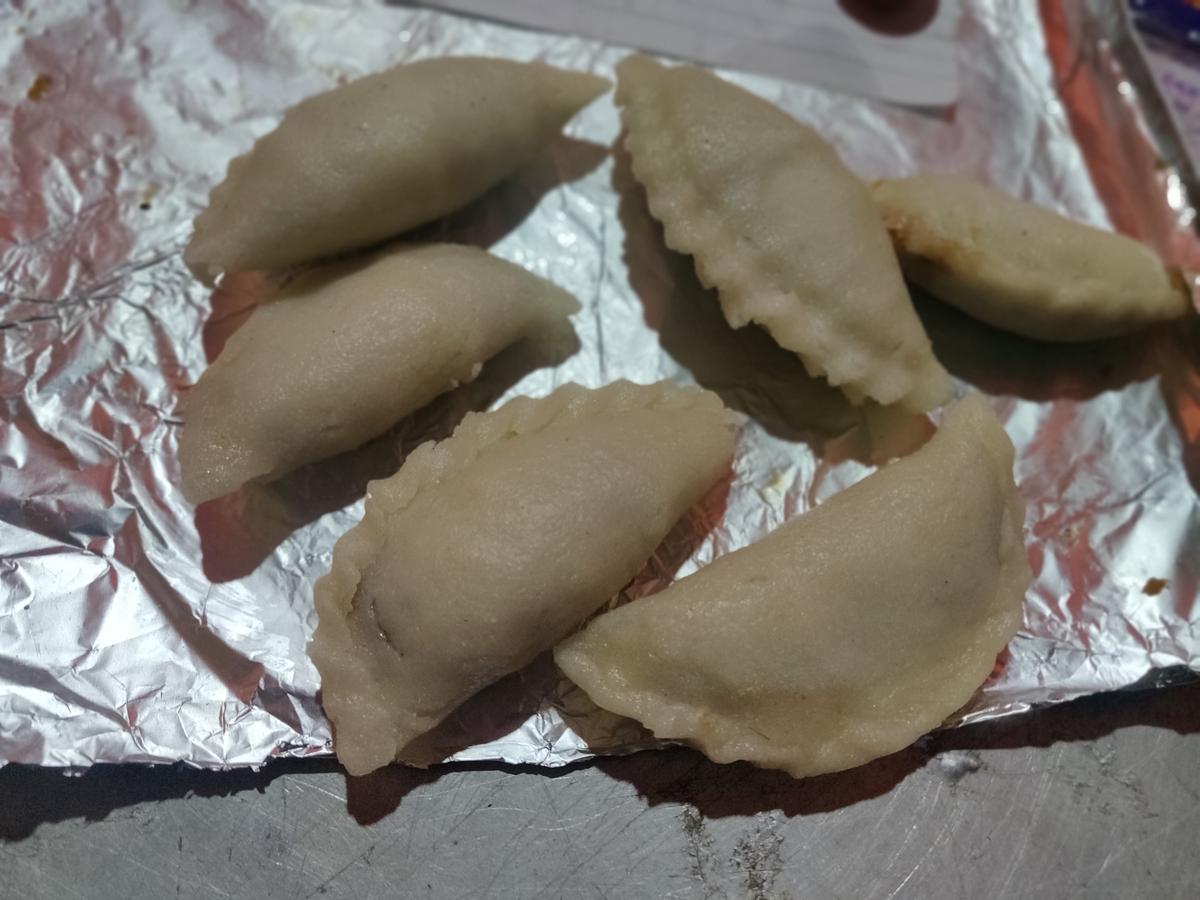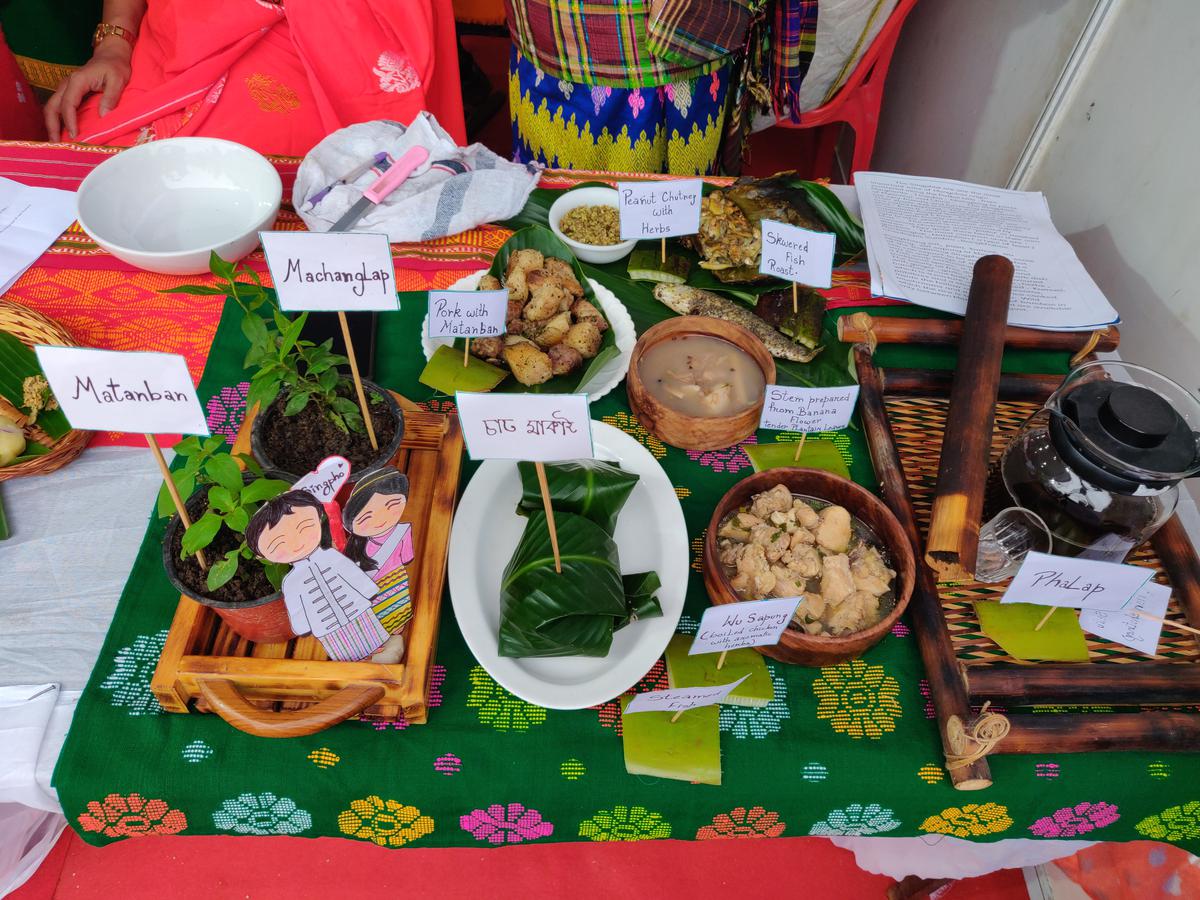A visit to Assam is a dive into its diverse cultural experiences and Rongali, Guwahati’s cultural festival, is a good place to start
A visit to Assam is a dive into its diverse cultural experiences and Rongali, Guwahati’s cultural festival, is a good place to start
Assam has so many layers of experiences to discover that I found myself going into a Google search overdrive. Attending Rongali cultural festival, was a crash course in getting acquainted with every experience the State has to offer.
Held in Guwahati in the last week of April it was organised by Trend MMS, a socio cultural organisation, with Vocal for Local as the theme. It brought some of Assam’s talents, artists and entrepreneurs to one venue — the Veterinary College Ground, Khanapara.
Organised by entrepreneur Shyamkanu Mahanta, the festival’s colourful sights included folk musicians, weaves such as Muga silk, and food traditions such as bamboo shoot pickles, pork on skewers and jars of bhut jholokia. .
In the same breath, new-age fashion shows and music performances at the Rongali Vibes stage kept the conversation relevant and entertaining. Youngsters rapped at the open mic stage while artists worked live on empty canvases, surrounded by viewers who got to see the final piece come alive over three days.
Food for thought
Geeta Dutta, a doctor-turned recipe creator and food influencer curated a traditional food exhibition at the event. She handheld us to understand how the terrain influences the food of the tribals. “Assam is a state of hills, plains and valleys occupied by numerous tribes. There are so many medicinal plants and wild edibles that we want to revive the culture of using them.” Under her guidance, we try foods from various tribes, that are also available to try at authentic restaurants across the city.

It is a sweet start with a pitha made from sticky rice powder stuffed with jaggery and sesame from the jolpan (snacks) and a refreshing smoky tea from the Singpho tribe. We follow this with rice beer which is a staple across tribes, a dish of foraged wild mushrooms and Mishagi leaves ( mudru) eaten by the Dimasa tribe underlined by the sharp tartness from fish fermented in khar(alkaline ).
From Mishing cuisine we try a local fish cooked in taro shoots and from the Bodo tribe black lentils with pork and roselle leaf. The Karbi tribe, we learn, usesesame seeds in their cooking making their food almost oil free. Food eaten by the Muslim community is an offbeat amalgamation of Mughal inspired-food rooted in Assamese ingredients.

Pitha
To add to that, you must bring back a bottle of rice beer too. An upcoming rice wine, XAJ, is a good option. Founder Akash Gogoi, who presented it at Rongali, has focussed on making it better filtered and smooth. Fermented pitha (disk shaped dry cakes) mixed with local medicinal herbs and a variety of rice go into its making. Gogoi compares the wine to the sake of Japan, soju of Korea and baiju of China.

Food exhibition
“I belong to the Ahom community and our food habits are similar to those of Myanmar, Vietnam and Thailand. Homemade rice wine is cloth filtered and not the cleanest. While this is not the first – Judima by the Dima Hasao tribe launched last year and won a GI tag for rice – XAJ is a balanced blend between pinot noir and white wine, and has a smoky finish that completely balances the sweetness from the rice.
Mahanta says, “Rongali Bihu marks the beginning of the Assamese New Year. The State during spring is ideal to visit. The aim of our festival is to reflect its cultural nuances and give a platform to entrepreneurs to present their interpretation of the State.” Guwahati, he tells us, is a perfect central base that connects a traveller to various experiences.
























